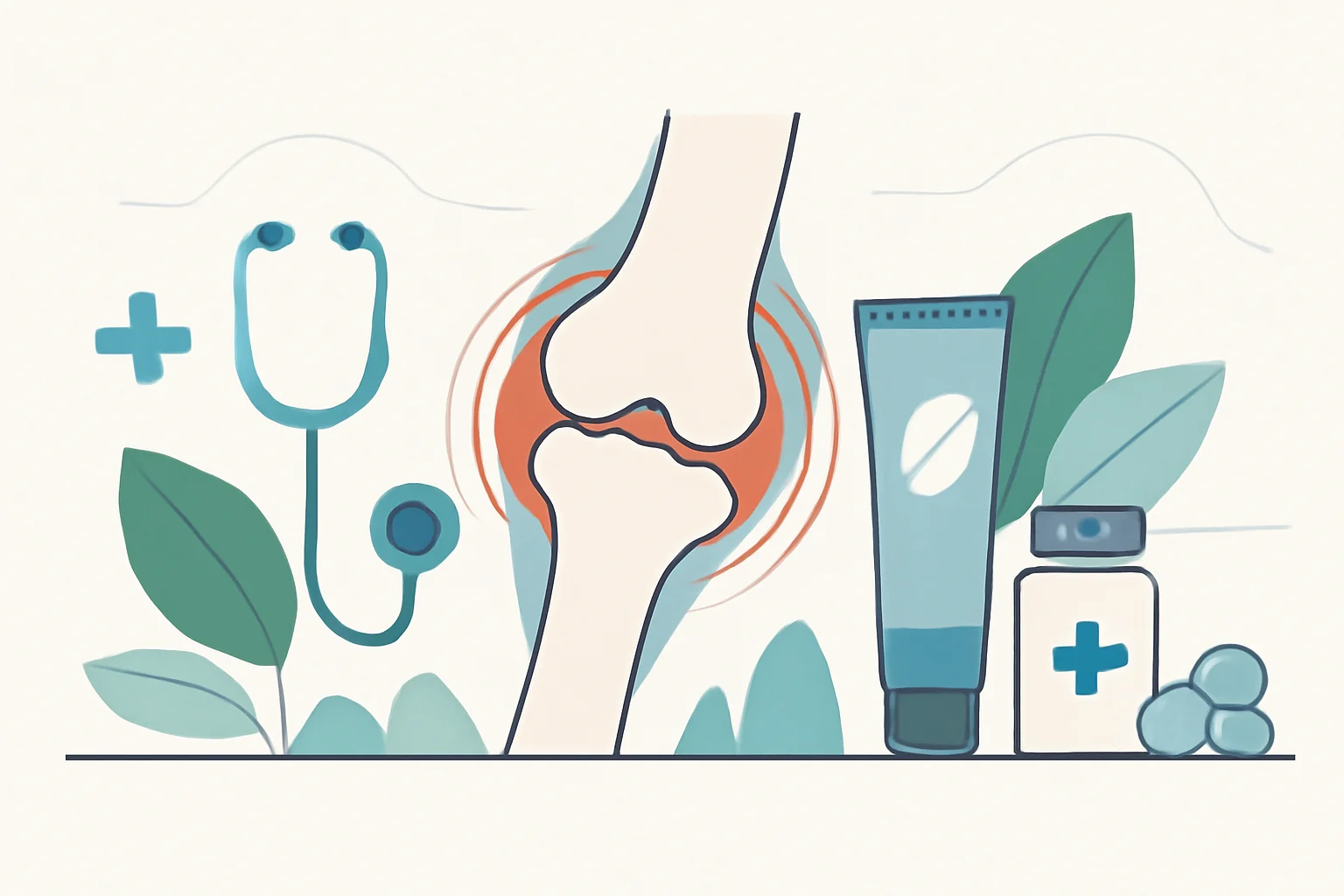
Tips for Maintaining Healthy Joints and Pain Management
The health of our joints plays a key role in our daily lives, as they enable movement, work, and recreation alike. Proper joint function is essential for living an active life and avoiding painful problems that can lead to restricted movement. The condition of our joints not only affects our physical activity but also our overall well-being. When the joints are healthy, movement is effortless, and there is no sensation of pain or discomfort.
Modern lifestyles, poor nutrition, lack of exercise, and stress can all contribute to the deterioration of our joints. Therefore, it is important to consciously pay attention to our body’s signals and take steps to protect our joints. A healthy lifestyle, proper nutrition, regular exercise, and stress management can all contribute to the long-term preservation of our joints. In the following sections, we will examine in more detail the factors that can help maintain joint health and present methods to support our musculoskeletal system.
The Structure and Function of Joints
Joints are structures that connect different bones in the body, allowing for movement and various activities. The structure of joints is extremely complex and consists of several different tissues. Cartilage, the synovial membrane, and synovial fluid all play important roles in maintaining joint health.
Cartilage is a smooth and flexible tissue located at the ends of joints, which reduces friction between bones when we move. Additionally, cartilage helps absorb the load that is placed on the joints. The synovial membrane surrounds the joint and produces synovial fluid, which nourishes the cartilage and reduces friction. The proper amount of synovial fluid is essential for smooth movement.
The health of our joints is closely related to exercise, nutrition, and lifestyle. Regular physical activity improves blood circulation to the joints, which helps in the regeneration of cartilage. However, excessive strain or improper movement can lead to cartilage wear and joint problems. Therefore, it is important to pay attention to proper techniques and respect our body’s limits during exercise.
To maintain joint health, proper nutrition is also essential. Nutrients such as vitamin C, omega-3 fatty acids, and collagen can help in the regeneration of cartilage and reduce inflammation in the joints. A balanced diet rich in vegetables, fruits, whole grains, and healthy fats can contribute to the protection of our joints.
The Role of a Healthy Lifestyle in Joint Protection
A healthy lifestyle is fundamental to maintaining joint health. An active lifestyle, which includes regular exercise, can reduce the risk of developing joint problems. Physical activity increases blood flow to the joints, improves flexibility, and strengthens the muscles that support the joints.
Choosing the right forms of exercise is crucial. Gentle, joint-friendly sports such as swimming, cycling, or Pilates can help maintain movement without putting excessive strain on our joints. Additionally, it is important never to skip warming up and cooling down, as these help prevent injuries and muscle tension.
Nutrition also plays a key role in joint health. Foods rich in antioxidants, such as berries, leafy greens, and fish, can help reduce inflammation and support cartilage regeneration. Omega-3 fatty acids, found in salmon and nuts, also have beneficial effects on joint health.
Stress management is also essential for maintaining joint health. Tension and muscle strain caused by stress can contribute to joint pain. Relaxation techniques such as meditation, breathing exercises, or yoga can help reduce stress and improve the overall condition of the body.
Nutrition and Joints: The Best Foods
Nutrition plays a crucial role in maintaining joint health. When choosing a diet, it is important to focus on consuming foods rich in the right nutrients. Some foods are particularly beneficial for the joints.
Fish, especially fatty fish like salmon, mackerel, and sardines, are rich in omega-3 fatty acids, which have anti-inflammatory effects. These fatty acids can help reduce joint pain and improve mobility.
Leafy greens, such as spinach, kale, and broccoli, are packed with antioxidants and vitamins that contribute to the protection of cartilage. Vitamin C is particularly important, as it aids in collagen production, which is essential for maintaining joint health.
Nuts and seeds, such as almonds, walnuts, and chia seeds, are also rich sources of omega-3 fatty acids and antioxidants. These foods contribute to reducing inflammation in the joints and regenerating cartilage.
To preserve joint health, it is advisable to avoid processed foods, excessive sugar and salt intake, and trans fats. These foods can cause inflammation in the body, which can lead to joint problems in the long run.
Natural Supplements for Joint Health
In addition to nutrition, several natural supplements can help maintain joint health. Some of these may be particularly effective in regenerating cartilage and reducing inflammation.
Collagen is one of the most well-known supplements that can aid in preserving the health of joints and cartilage. Collagen protein is a fundamental building block of connective tissues, and adequate collagen levels can contribute to the flexibility and stability of joints.
Glucosamine and chondroitin sulfate are also popular supplements often recommended for joint problems. These compounds can help in the regeneration of cartilage and reduce inflammation, thereby improving joint mobility.
Omega-3 fatty acid supplements, such as fish oil, can also be very beneficial for preserving joint health. Additionally, turmeric, known for its anti-inflammatory properties, can also have a positive effect on the joints.
It is important to take any supplements under the guidance of a doctor, as some supplements can interact with other medications and may not be recommended for everyone.
**Note:** This article does not constitute medical advice. Always consult a doctor for health issues!

